

Mogicのかんがえをきく
Mogicの考えをお届けするため、代表にインタビュー。
今回は、社内教育を中心に、Mogicならではの採用を含めて訊いてみました。更に、濃厚なロングインタビューになっています。
第二回
教育と採用をきく
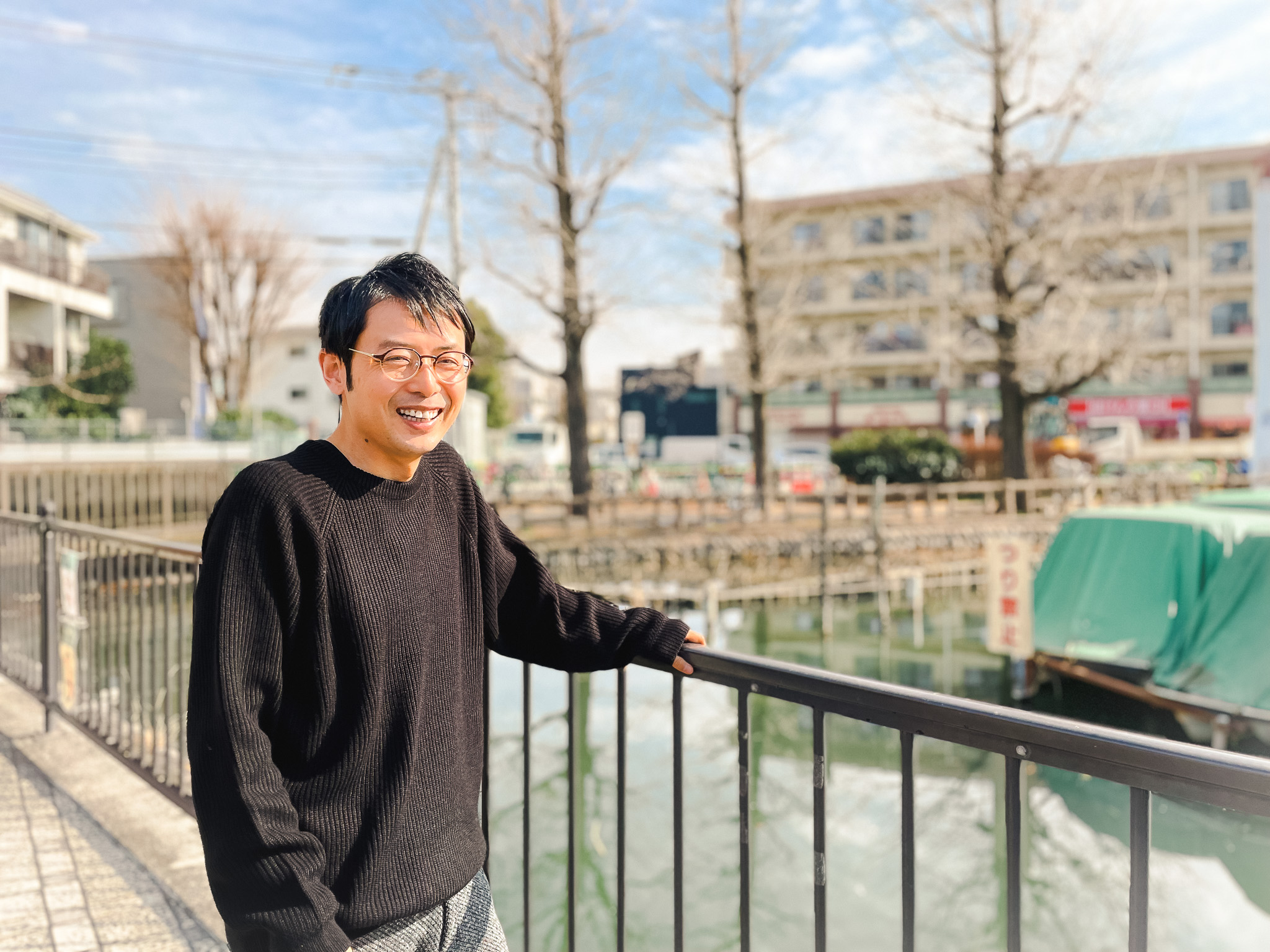
働くとは
自分が信じた価値を自分が信じたようにやることだ


Mogicが大切にしている採用のカン
最後まで一緒にやり切れそうな雰囲気があるか
-
前回のインタビューの後、社内だけじゃなく社外の人にも「質問したいこと、ありますか?」って聞いてました。やっぱり、Mogicの社内教育に興味があるって声が多くて。そこで今回は、教育に絞って前回より深くお話をうかがいたいと思います。
いきなり教育に入りたくはあるんですが、その前にどんな採用をしてるんだろうって気になります。どんな人に入社してもらいたいとかあれば、聞かせてください。
山根
結構シンプルで、会った時に「ああ、一緒に働きたいなあ」って思えるかどうかなんです。なんだろう、答えになってないように聞こえるかもですが。一般的な面接だと、能力が高いとか、スキルが欲しいとか、即戦力になってほしいとか、目線が高いとか、言われたことは確実にやるとか、いろいろ条件があると思うんです。でも大事にしていることは、最後の最後にピンチになっても一緒に頑張ってくれそうな人と、あとは自分が最後まで一緒に頑張りたいなと思う人を採用してる感じですね。
-
それは面接される時、どういうところで分かるものなのでしょうか?
山根
察する、ですね。もうちょっと詳しくいうと、応募された方と自分との相性みたいのがあるじゃないですか。だって、絶対的に採用される人はいないので。自分たちと組んだときに、この人は最後まで一緒にやり切れそうな雰囲気があるかな、というのをいろいろな感じで確認するんです。なので、残念ながら定型の質問ってのがないんです。同じ質問でも違うタイミングに差し込んだら、受け取る意味って変わるので流れで聞き方を変えています。
逆の立場に立つと、採用に応募された方に動機っていろいろあると思うんですよね。例えば、給料とか、残業とか、場所とか、やりがいとか、何かを重視してる。そこらへんがやっぱり僕らと近いというのが、おそらく最後まで一緒にやりきれるベクトルなのかもしれないですね。
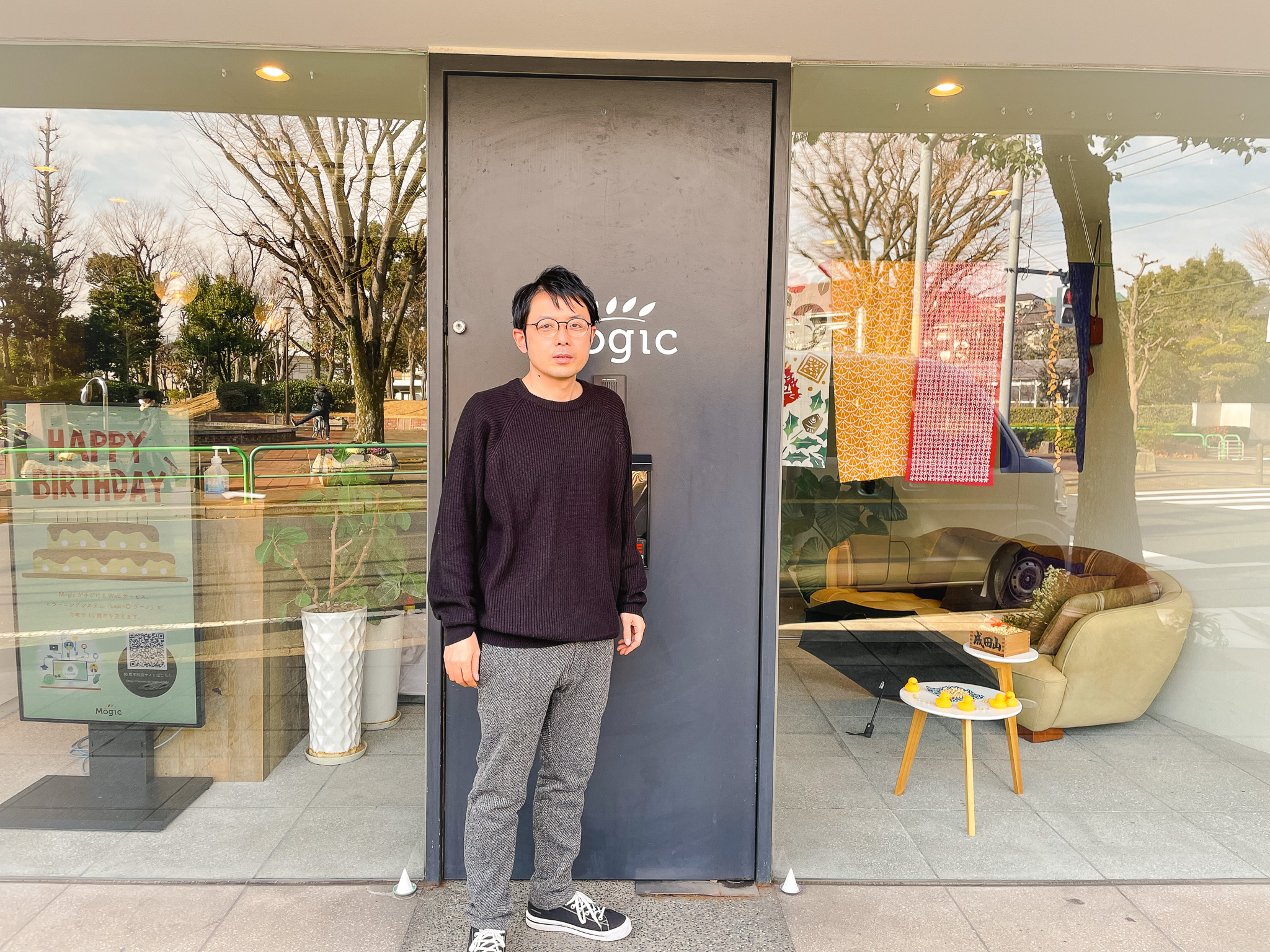
-
それを質問を重ねながら、探っていくということですか?
山根
そうですね。人っていうのは、耳に入ったけど聞こえてないことは結局できないと思っているんです。こちらが出した質問に対して、聞いている部分と聞かなかった部分が存在してる。聞いたところは、その人が日頃からよく考えてる部分でしょうね。仮に、それが面接対策の言葉だったとしても、面接のことばかり考えてるってことでは間違ってない。聞かなかった部分は、考えてないか、見ようとしてない可能性が高いかな。
使う単語、文章のつづりかた、話し始める間合い、考える時間の長さ、思いを巡らすときの所作、意外なことを聞かれたときの反応の仕方、聞いている時の表情。日頃から何かを考えている人は自分の言葉というか、そこを使ってしゃべってくるので、どうもこの人はこういうライフスタイルで生きていきたいんだなという根っこが分かってくる気がするんですね。
-
短い面接の時間でそこまで見ようとしているのでしょうか?
山根
まあ、見ようとしてるのであって、見られているかどうかは別問題でしょうね。結局、人間というのは自分が心地いいと思っている生活空間で普段着の言葉で生きているわけなので。家族と話して、友達に声をかけている言葉と空気感は隠そうとしても出てきます。面接の中盤でリラックスしはじめたときとか、ちょっと冗談言ったときとか、これがたぶん素なんだろうなというところで自分たちと合っているかを確認しますね。
Mogicの場合、新しいものをつくりたいとか、ワークライフバランス良くやりたいとか、チームで楽しくやりたいよという気持ちが大事なので、こういう雰囲気を感じられると合うんじゃないかと考えます。逆に、スキルを突きつめたいんです!キャリアを上りつめたいんです!タワマンに住みたいです!みたいな感じだと合わないですよね。そもそも応募されないと思ってるんですが。
-
すべての面接でそうやるのは大変そうですね
山根
ありがたいことに僕はすべての面接の5%もしてないので、大変じゃないです(笑)。各部門の責任者とベーシックエデュケーション(社内教育の専門部門)の責任者で、似た感じで面接してると思います。昔は一緒に面接に出ていたので、徐々に勘所というか、ニュアンスが伝わった感じですね。


Mogicらしい社内教育
問題意識を持っていれば自然と学んでいく
-
では採用された後、どのように社員教育を進められているんでしょうか?
山根
Mogicのパターンだと、スキルや技術を持って入ってくる人は少なくて。エンジニアだとちょっとプログラミングかじっているぐらい、デザイナーの社員もインターン出身ばかりなので、もともと持っているスキルはさほど気にしていないんですよね。入ってもらってからぐっと伸びればいいのかなと。
ただ、教育はすごく難しくて。なんでしょう、会社の営業時間で教育をたっぷりしてるみたいに言われるんですが、本当はたいしたことないんですよね。例えば、1週間に1時間教えるとしても月4時間しか教えられないじゃないですか。毎日1時間ずつ教えたとしても、1ヶ月でだいたい25時間ですよね。
普通に暮らしてると起きてる時間が1日15時間あって、それが1カ月だと15時間*30日=450時間になるじゃないですか。毎日1時間、会社で教えられたとしても、ごくわずかですよね。えーと、25時間/450時間=5%、ごくわずかですよね。
1日1時間教えても、教えられる時間ってごくわずか。だから、本質的に教えることはできないと思っているんですよ。教えた時間によってリターンが返ってくるみたいな感覚はなくて、本人が問題意識を持っていれば生活している中で自然と学んでいくから、それが正解なんじゃないかなと。
-
たしかにそう言われるとそうですね
山根
一つ、例を出します。広報のインターン生になりました、どうも写真撮ったけど下手だった。ああ、先輩が撮ったのはこうだったなと感じたり、見た人からこうすればよかったんじゃないとフィードバックもらったりします。そしたら、自分がプライベートで友達の写真撮るとき、チラッと考えますよね。インスタ見るときも、これいいかなってちょっと気になりますよね。それが大事なのかなと思っています。
つまりは、問題意識のはじまりを手助けするみたいな。自分が生きていく中で何気なくしていたことに、こういうふうに見たらいいかもねって、フィードバックをかける感じですかね。それは別に強制じゃないんですよ。その人にとって役立つなら自然とやると思うので。自分に役立つなと思えばプライベートでも考えるじゃないですか。だから、そういうことが教育を考える視点として大事だと思っていますね。
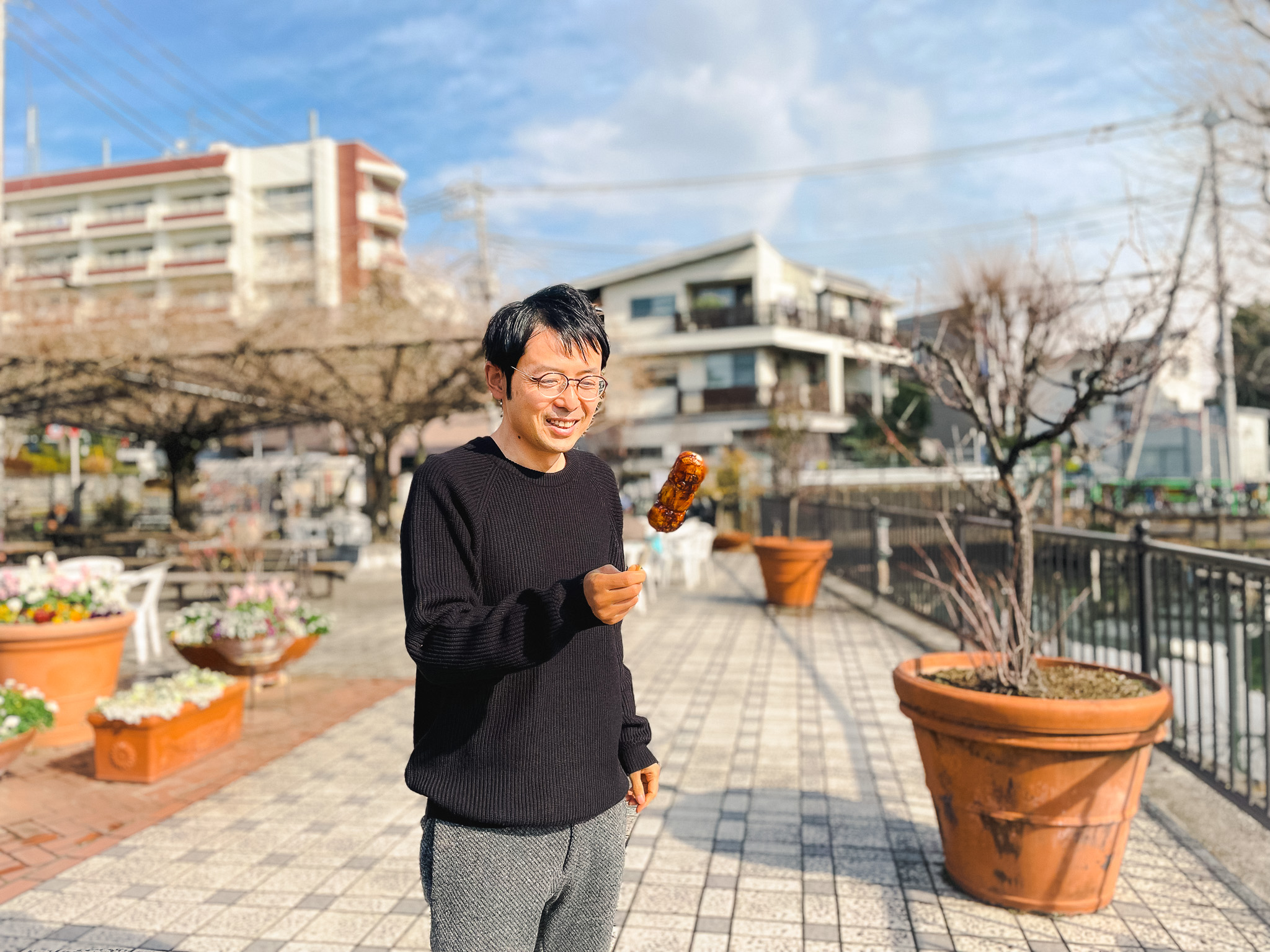
-
それは社員であっても、パートであっても同じでしょうか?
山根
ということなのかなという気はしますね。最近の出来事でいえば、マーケティングのパートの方って全然文章を書く機会がなかったんですけど、1年ぐらいかけてトレーニングをちょこちょこやって、今だとメディアの文章をスラッと書いてます。スラッとじゃないですって、いわれそうですけど。以前は「書けない、難しい、できないかも」って言っていたんですけど、書けるようになったと。
そしたら、新しい欲が出ますよね。みんなの年始の抱負を見ても「文章をもっとうまく書きたい」って書いてるし。強制はさっぱりしてないんです。だけど、シンプルに文章がうまくなった感がおそらくうれしいんだと思うんですよ。手紙を送ったり、子どもの学校で冊子に寄稿したり、何でもいいんですけど、そういうときに役立ちますから。
-
はい、やっぱり成長を感じられるといいものです
山根
だから、自然とモチベーションがつながるじゃないですか。そういう感じの教え方がいいんじゃないかと思ってますね。
-
さきほどちらっと出てきましたが、Mogicは教育の一つとしてフィードバックをとても大切にしていると思います。フィードバックをうまくやるために、山根さん自身が考えられていることってありますか?
山根
Mogicだと、出社した時と退勤の時に社内限定のチャットサービスでちょっとコメント、書きますよね。こんなことした、あんなことしたって書くんですけど、あれ、結構難しいと思うんですよ。つまり、続けているとネタを探さなきゃいけない、面白そうに書かなきゃいけないかもと。1日2回のアウトプットは最低限あるのでこれがあることでフィードバックかけやすくなります。そして、コメント一つとってもどのぐらいコンディションがいいか悪いか、意識して取り組んでるか、成長してるかが、やっぱりわかりますね。
-
あの朝と帰りのどうしようもないっていったら怒られますが、たわいもないコメントででしょうか?
山根
あれで分かりますね。まず、インターンの子って最初入ったときはぎこちないですよね。なんか片言な文章を書くんですが、そのうちプライベートの話をみんなの会話にうまく乗せられるようになります。それはなじんでいるというか、何か意識をしているんだと思うんですけど、こなれたんだなとわかりますね。
あとインターン生のコメントをちらほら見てるだけで、本人は見えてないけど、たぶん見えた方がいい場所が分かってくるので覚えといて、たまに彼らが書いた議事録やデザイン、コラムの文章をみる機会に混ぜてコメントします。ここに意識が向けば、ずいぶん伸びるだろうなと勝手に思っているので。そこに意識が向いてくれればいいなという話し方をします。
きちんと分解して言葉にして伝えているだけ
-
それはもうすでに山根さんの中にあって、何かしら響くという予測はあるんでしょうか?
山根
そこを正確にいいなおすと、少し違うかな、ごめんなさい(笑)。僕の中にあるものは、たぶんインターン生には響かないでしょうね。人って、ただ与えられたものは自分の中に入らないと思ってますから。誰かが作ったもの、誰かがアドバイスしてくれたことって納得感はあるんだけど、実はあんまり身になってないというか。
自分が思い切ってトライして間違えたりすると、すぐに身に付くじゃないですか。だから、その子がやったアウトプットにだけ、いいとか悪いとか、ここが足りてないんじゃないのって指摘するだけですね。つまり、こっち側に答えがあって、答えに合っていない部分の差分を伝えるってことはしないんです。
というより、できたものに偏りが感じられるはずなんですよ。デザインを例にとれば、レイアウトなのか、テキストなのか、グラデーションなのか、目の誘導の仕方なのかとか、いっぱいポイントがあるんです。だから、どこかが崩れているはずなんですよね。プロじゃない人に見てもらっても「なにかこうおかしくて、なんかイマイチだね」って感想は出てきます。だけど、それだと本人は受け取れないので、きちんと分解して、きちんと言葉にしてあげて、それを伝えてるだけですね。本人が使っている言葉だけで話しかけるみたいな。
教える人が根本的な原因を言ってあげる
-
じゃあ、第三者の視点でアドバイスっていうより、出てきたものを見て、相手の目線で違和感を伝えて磨いていくという感じですか?
山根
そうですね。同じ入社タイミングで2人いたとしても、個性が違いますよね。すごく一つを突き詰めたいタイプと、広くやりたいタイプって分かれていたら、同じ指導をしてもどっちかが伸びないですよね。深くなる人は、深くなるところを強めつつ、ちょっと横にも目を配ろうね、みたいなアドバイスをするでしょうし、広い人は、広いのを広めつつ、ちょっと深めようねってするかもしれないですし。そもそも元が違うじゃないですか。だから、そこをどう生かして、プラス足りないところのバランスを取らせるかってことですかね。
-
そういう違和感は経験していく中で、パッと分かるようになるんでしょうか?
山根
そもそも、みんな分かってると思いますよ。Mogicのカレンダー制作を例にとってもいいんですが、あれを作る最中に社内の人に見せますよね。そしたら、なんかいいとか、なんか悪いって必ず言います。意見がないっていうことはないじゃないですか。ということは何かに反応しているんですけど。
ただ、その感覚をどうやって言葉にして、相手に伝わるようにすべきかは分かってはいないんだと思います。その部分は技術なので、教える方は身につける必要はありますね。
-
感じたものの、言語化っていうことでしょうか?
山根
言語化といえばいいんでしょうか。昔のやり方だと「背中を見て覚えろ」とか、「それは自分の頭で考えるべきことだぞ」とか、そういう言葉でもっと大きくボールを投げると思うんですよ。ざっくり投げるじゃないですか。でも、あんまりいいやり方だと、僕は思えてなくて。それで分かっているんだったら、もうやれてるよねっていう話になるので。
まずは大きな問題をどういうふうに切り刻んで、言葉にして、弱点を見つけたり、バランスを取るのかっていう技術を身に付けないといけないと思うんですよね。みそ汁を作るとするじゃないですか。みそ汁を作ったときに、初めてでも何となく美味しくないって、分かりますよね。だけど、それ以上は分からない。
だから、教える人が「これは具材の切り方が均等じゃなくて食感が悪いから、味が染み出ていないんだ」とか、「それはだしを入れるタイミングがちょっと違うんじゃないか」とか、「そういう手間かけないと、風味が変わっちゃうんだよ」って言った方がいいですよね。
そう言わずに「なんとなく美味しくないから、何度でも作ってみろ」「俺の味をしっかり確認してから、もう一度作ってみろ」って言うとですね、たぶん作れないんですよ。
教える人がもっと根本的な原因をちゃんと言ってあげるようにする。どうもみそ汁というのは、だしから、沸騰のさせ方から、具材の切り方から、っていう時間に沿ったレイヤー構造になっていて、それをうまく重ねて成立しているんだって分かるようになれば、あとは自分で分解できますから。
-
すごく自分に刺さるというか、そういうことができていないんだなって刺さりました。深く考えずにやってきたっていうのがよく分かりました。


Mogicの直接関係なさそうなトレーニング
チームワークとは強みと弱みを理解して設計すること
-
他の会社だったらマネジメント研修とか、プロジェクト管理研修とか、プログラミング研修とかもっと直接的な教育がされると思うのですが、そうじゃないですよね。スキルや実績に直接関係ないようなトレーニングをしてるような気がします。なにか過去の事例でプロセスがわかりやすいものはありますか?Mogicらしいトレーニングがインタビューを読んでいる人に伝わる気がして。
山根
そうですね。エンジニアのインターン生たちを取り上げますね。彼ら本当はプログラミングを学びに来ているんですよね。技術的なことを教えてほしいって話なんですけど。
でも、他の職種のインターン生と組ませて、社外に出すアプリ(年賀状代わりに年1回出す企画)のプロジェクトをやってもらったりもします。学生同士だとアプリのアイデアは出せるけど、なかなかプロジェクトのマネジメントはうまくいかないんですよね、意見が割れてしまって。そうするとイライラしてきて「結局みんなの意見をまとめるというのは無理で、誰かが先陣きって後はついてくだけですから、チームワークって意味ないと思うんです」って言ったりします。
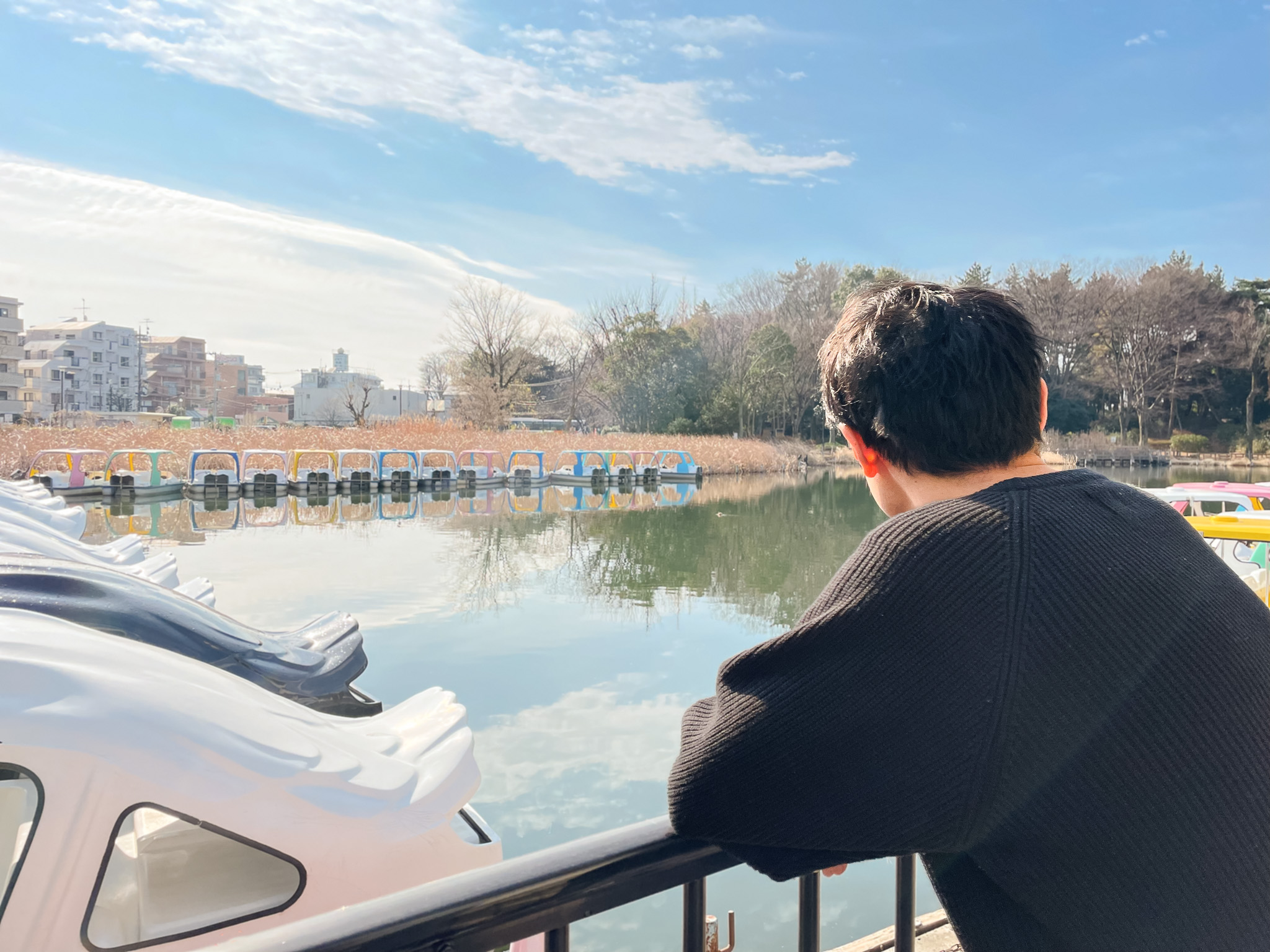
-
エンジニアのインターン生がそう言ったりするんですか?
山根
そうですね、言ってましたね。それで「お前、否定する割にチームワークが何か分かってないぞ」みたいな話をしたんですよ。「世に言われるチームワークとは一体何で、どう定義できるか言ってみろ」って振ったんですよね。そしたら「人と人が助け合ってうんぬん、作業を決めて役割を振って分業して」みたいに話してましたね。
じゃあと、例を出しました。無人島に2人いたとして、魚釣りが得意だけど料理は下手な人と、料理は得意だけど魚は取れない人だったら、助け合った方がうまくいくよねって言ったんですよね。だから、チームワークはそういうもので、お互いの強みと弱みを理解して、強みを残しつつ弱みは互いに打ち消すようにちゃんと設計することがチームワークなんだよって教えたんです。誰かが決めたゴールをタスクに分けて作業をこなすだけじゃないぞと。
そしたら「おっ」って顔になって、どうもそういうことはまったく考えてなかったと。つまりは、自分一人で成果を出さなきゃって考えが土台にあるんですね。個人技の世界ですね。学生は勉強とか一人でやることが多いじゃないですか。一人でやっていることの延長線上にチームワークがあるって考えているんです。
そうじゃなくて世の中にはいろんな個性の人がいて得意な人がいるから、うまく組み合わさってパフォーマンスをするんだっていうのを学んだことがないみたいな話になって。
-
言われてみるとたしかに、チームワークについてちゃんと聞いたことないですね
山根
何か気づきがあったんでしょうね。僕が書いていた社内向けのコラムとか読むようになって、就活の捉え方とか、自分の気持ちを言葉にするところをすごく学んでいった気がします。彼は就活でだいぶうまくいきましたね。あちこち内定もらったんじゃないですか。
ですから、結果としてあれが生きていく力を教えられたっていう例なんです。やっぱり、プロジェクトとかサービスをやりながら、ぶつかるんですよね、問題に。失敗するんですよね。失敗する問題をわざわざ出しているんですけど。その時に、心の奥底から本当の気持ちが出てくるじゃないですか。そこに真正面からちゃんと僕らが感じているボールを投げてあげて、正しく議論するってことなのかなと思いますね。
いろんなスキルがちょこちょこないと難しい
-
彼自身も見えてなかったものが、見えてくるようになると
山根
彼の例でいえば、プログラミングは見えているんですよ。だけどチームワークはさっぱり見えていないというのは分かっていたので。得意なプログラミングは残しつつ、チームワークというのをちゃんと入れておこうねというのがちゃんと伝わって。やがて彼自身が言語化できるようになって、人としてスキルがぐっと増えたっていうケースですね。
なんか偏っているんですよ。今の日本社会の特徴なのか、ちょっと分からないですけど。尖がったスキルを持ってるとスペシャリストになれるじゃないですけど、そういう雰囲気あるじゃないですか。手に職をつけたいといった感じなんですけど。
コロナ禍だったり、状況が結構不安定なので、いろんなスキルがちょこちょこないと難しいんですよね。エンジニアとしてプログラミングができて、人をまとめることもできるし、ブログで文章も書けるしって人がいたら、もし万が一職を失っても「ブログ読んでたよ、うち来ないか」と言われるかもしれないですし。
そういう時代じゃないですか。だから、そういう方が生きやすいのかなと思って。考えながらフィードバックをかけているって感じです。


Mogicが考える価値のある働き方
働くことに対してどういうポリシーでいきたいのか
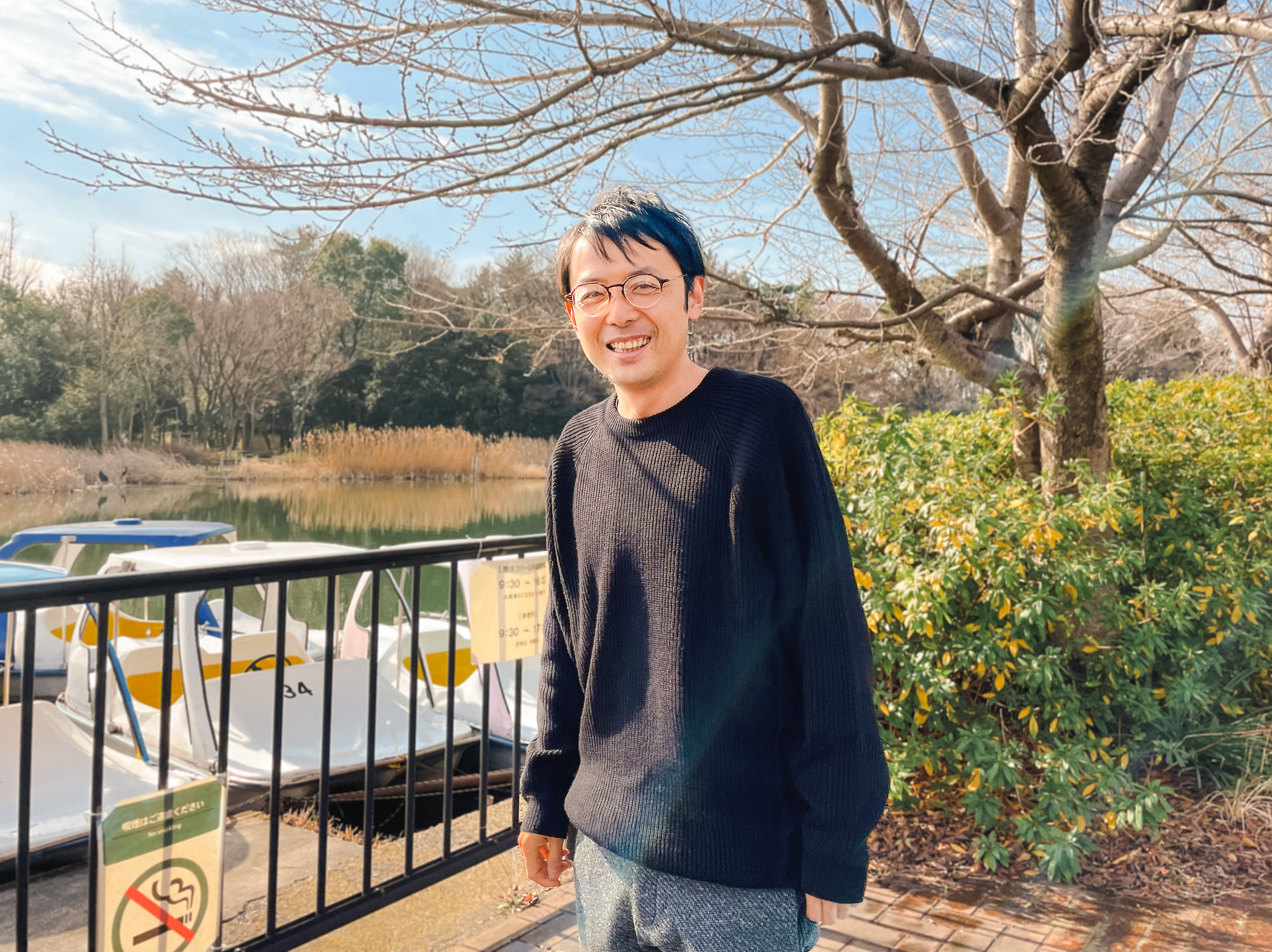
-
昔は仕事中にインターン生がコーヒーの焙煎(ばいせん)やおやつ作りをしてましたよね?あれもトレーニングとして、何か意図があるんですか? (※生豆からフライパンでコーヒー豆を焙煎することや、小麦粉や砂糖からオーブンで焼き菓子を作ること)
山根
コーヒーの焙煎やおやつづくりってことだけに限っていくと、働くとは何ぞや、成果を出すとは何ぞやってことを一度考えてほしかったんですね。ただコーヒーの焙煎と働くことの意義がどうつながるかってことが分かりづらいですね。
インターンにくる学生は真面目な子が多いので「会社とは、好きか嫌いか分からずとも、机に座って上司に言われたことを黙々とこなして給料をもらうことなんだ」っていう感覚で来ていると思うんです。
でも、それって「本当にその仕事が役に立っているのか」とか、「その仕事は本当に自分の人生にとってどういう意味があるのか」ってはまったく考えていないじゃないですか。考える余地がないんですよ。目の前に運ばれてきた仕事をするのが当たり前になっちゃうわけじゃないですか。
-
社会人になってから仕事とはそういうものだと思ってました。
山根
でも、仕事中にコーヒーの焙煎とかすると、仕事中に仕事じゃないことするじゃないですか。彼らは「これ意味があるのかな」って思いますよね。生豆から焙煎をやったことなくて、楽しそうだからやってそうじゃないですか。なんか意味なさそうですよ。
だけど、これがFacebookの記事としてあがったりすると、外部にどうにも面白そうな会社だと伝わっていきますよね。会社のブランディングという視点でみれば、仕事っぽくなく楽しんでることも会社にとって価値になるんだなと。見方を変えれば、楽しいこともできるし、楽しく仕事してもいいじゃないかと。
あと、おやつを作ったあとすぐ仕事に戻るんですよね、社員は。だけどインターンは、だらっとしちゃうんですよ。それを見て、どうも切り替えがすごく大事なんだと気がつくとか。
-
みなさん、切り替えの早さはすごいなと思います
山根
ですから、そうやって切り替えを多くするからこそ、スピードが出ているんじゃないかとか、いろんな気づきが出てきます。つまり、働くってことは本質的に何をすべきなのかっていうのを問わないまましちゃダメなんです、特にMogicではそうです。働くとは、自分が信じた価値を自分が信じたようにやるんだってことをちゃんと最初に教えたいんです。
それが会社の考えとずれているんだったら議論をすればいいと思います。こう思うんですって言って。それで、会社の意見はこうなんだって調整すればいいし。それで合わなければ自分の考えを信じて別の場所にトライすればいいと思っているんです。
-
ただ今どき働くことは稼ぐことで、そんなに自分の働き方を話したくないという人もいそうですが
山根
Mogicとしては、やっぱり自分はどうしたいんだっていうところを確認したいのかな。自分の働くことに対して、どういうポリシーでいきたいのか。だから、それが面倒だし、興味ない人には向いてない会社かもしれませんね。結局、冒頭の採用の話とかぶっちゃうんですけど、自分の人生に対して働くってことをどこに置いているのか、そこを最初に確かめたいと思ってるんでしょうね。
-
なるほど、最後まで一緒にがんばれるかの根っこに働く姿勢があるんですね
山根
学校を卒業すると義務教育じゃないから、勉強しなくていいんです。学ばなくてもいいじゃないですか。だけど、なんか違う、こんな感じじゃない、何かが必要だけど見つけ方が分からない。義務じゃないから、課題が降ってくるわけじゃない。自分なりのスタートポイントが見つからないと勉強がはじまらないわけです。
だから、その人にとっての次のステップみたいなところをちょっとサポートできればという感じです。Mogicだと年始のはじめに全員が今年の抱負を書いたメールを送るじゃないですか。みんな仕事もプライベートもちゃんと課題書いてますよね。誰に与えられたわけでもないのに、自分の中ではこういう考えだから挑戦したいとか書きます。だけど笑えるほどバラバラです。だからもうそれでいいのかなと思ってみています。
-
聞けば聞くほど、理解できなくなったような(笑)。何かが伝わるといいのですが。今回もロングインタビューになっちゃいましたが、ありがとうございました!
山根
こちらこそ、ありがとうございました!
